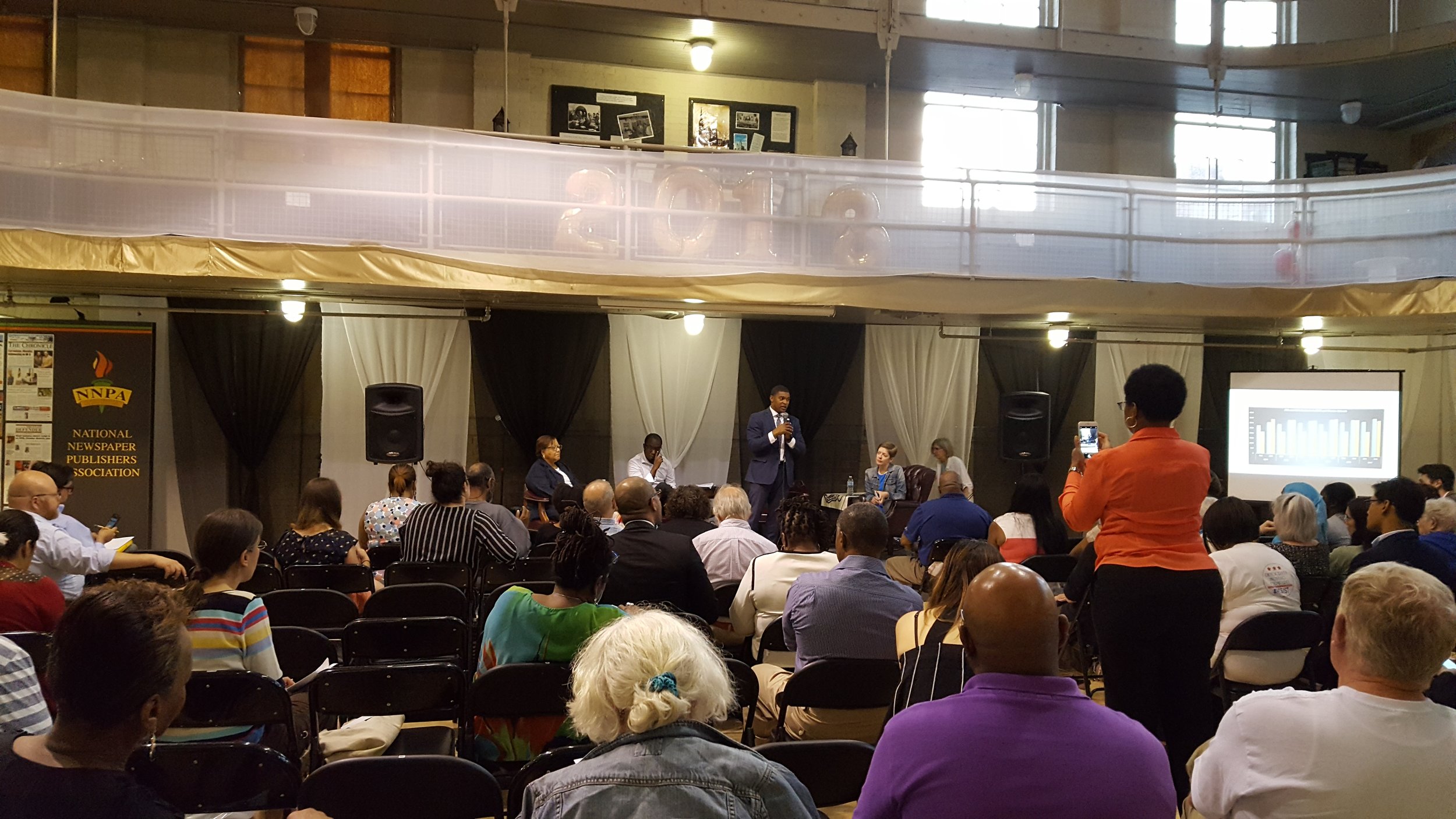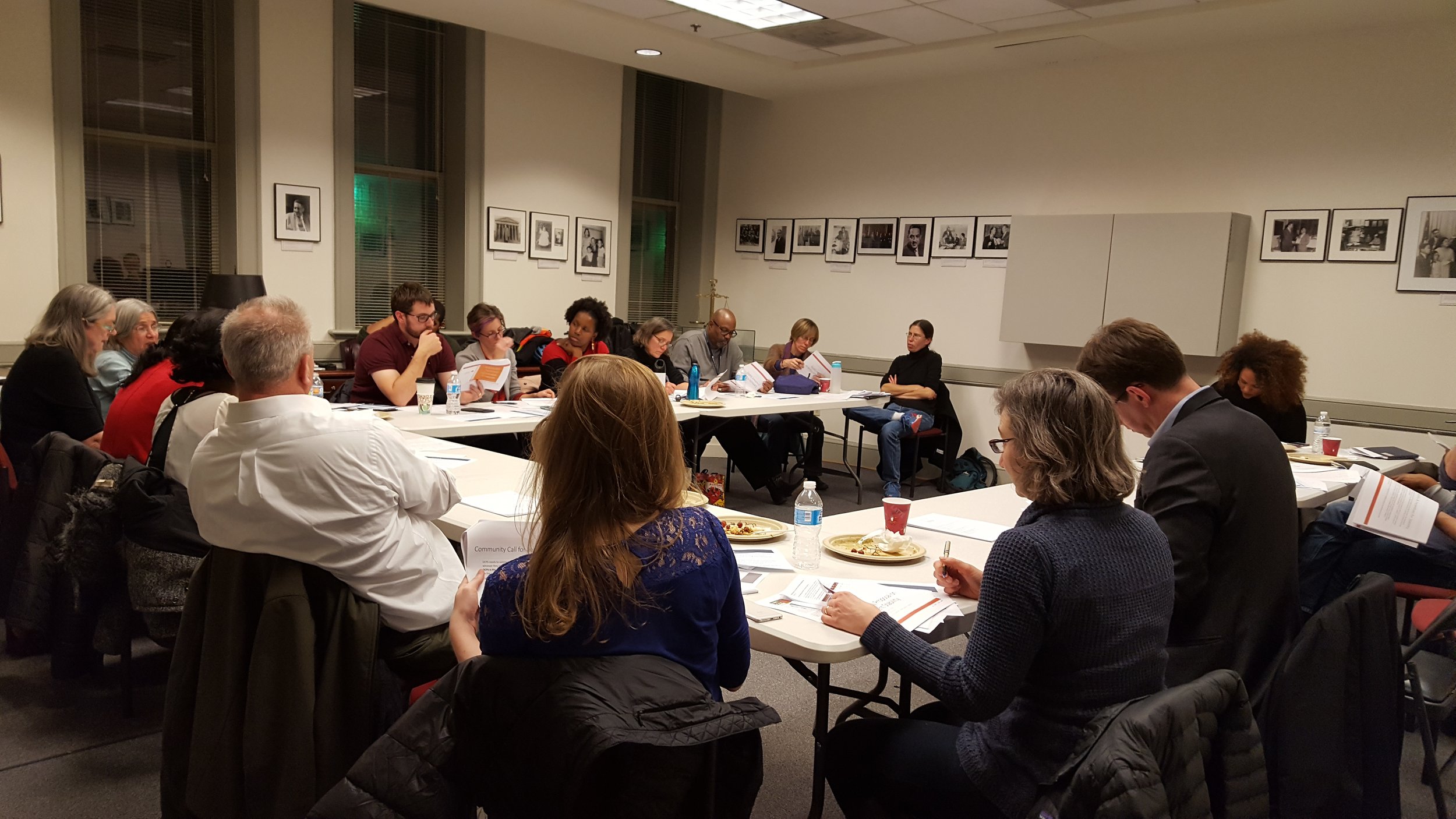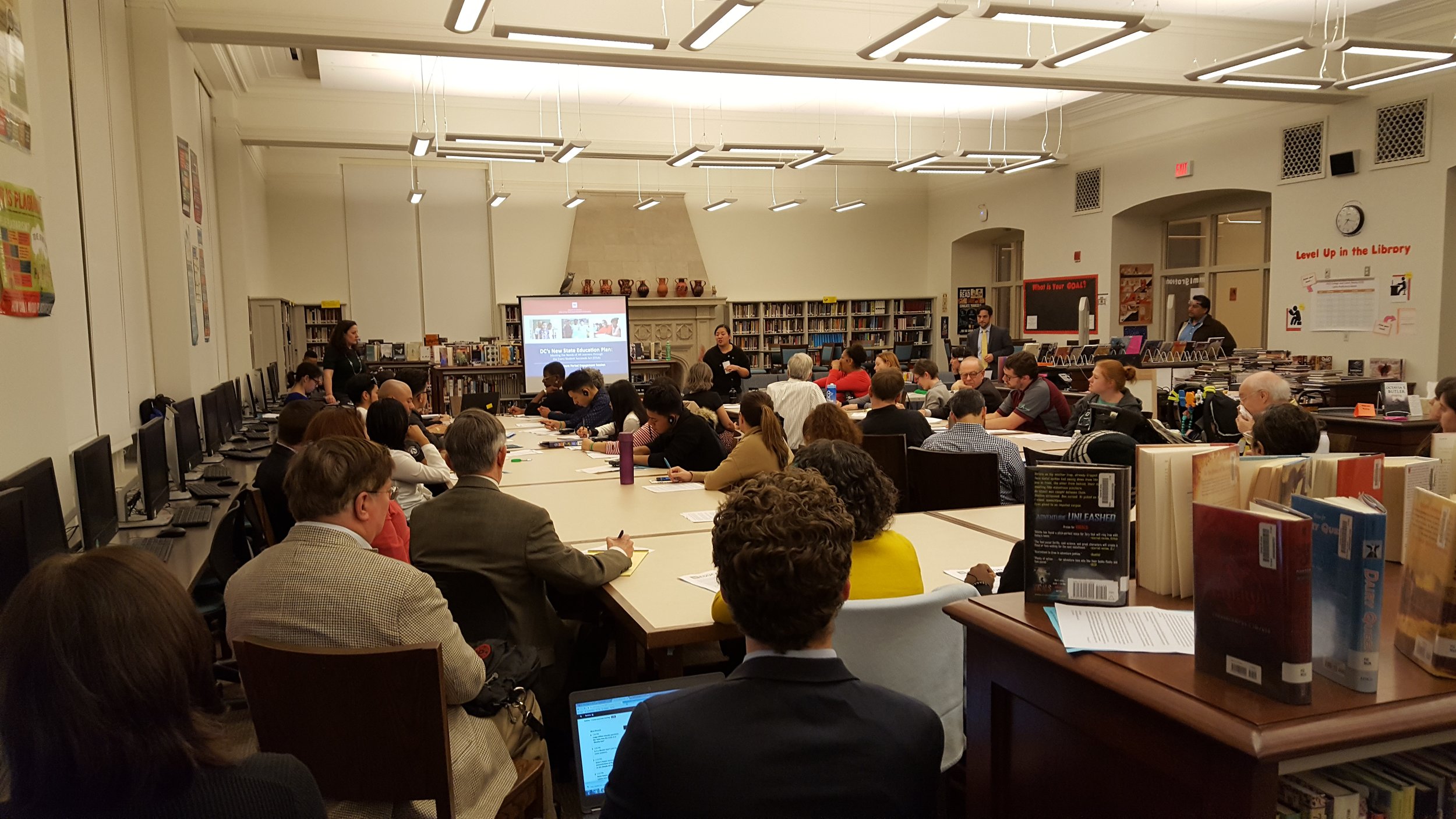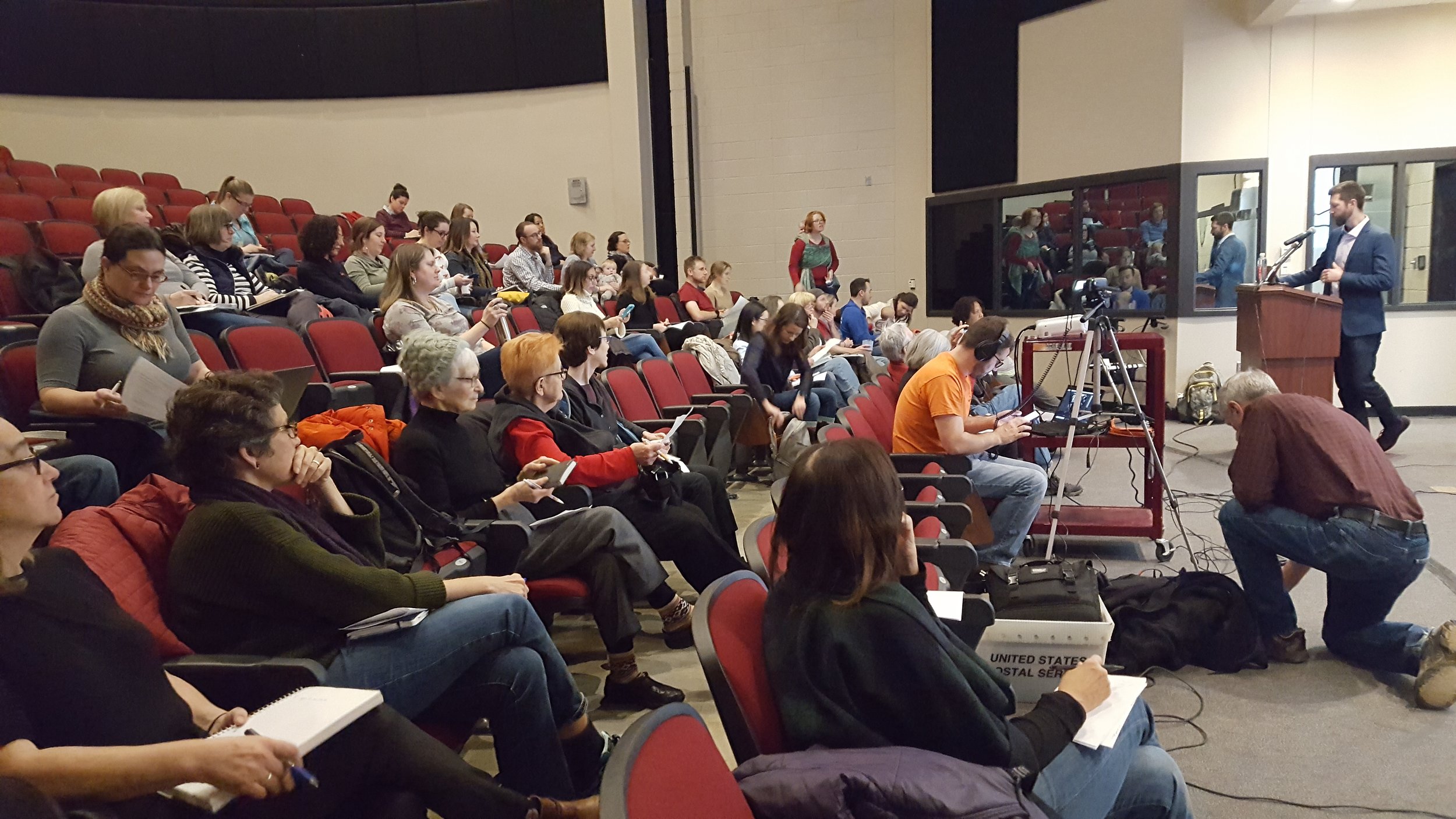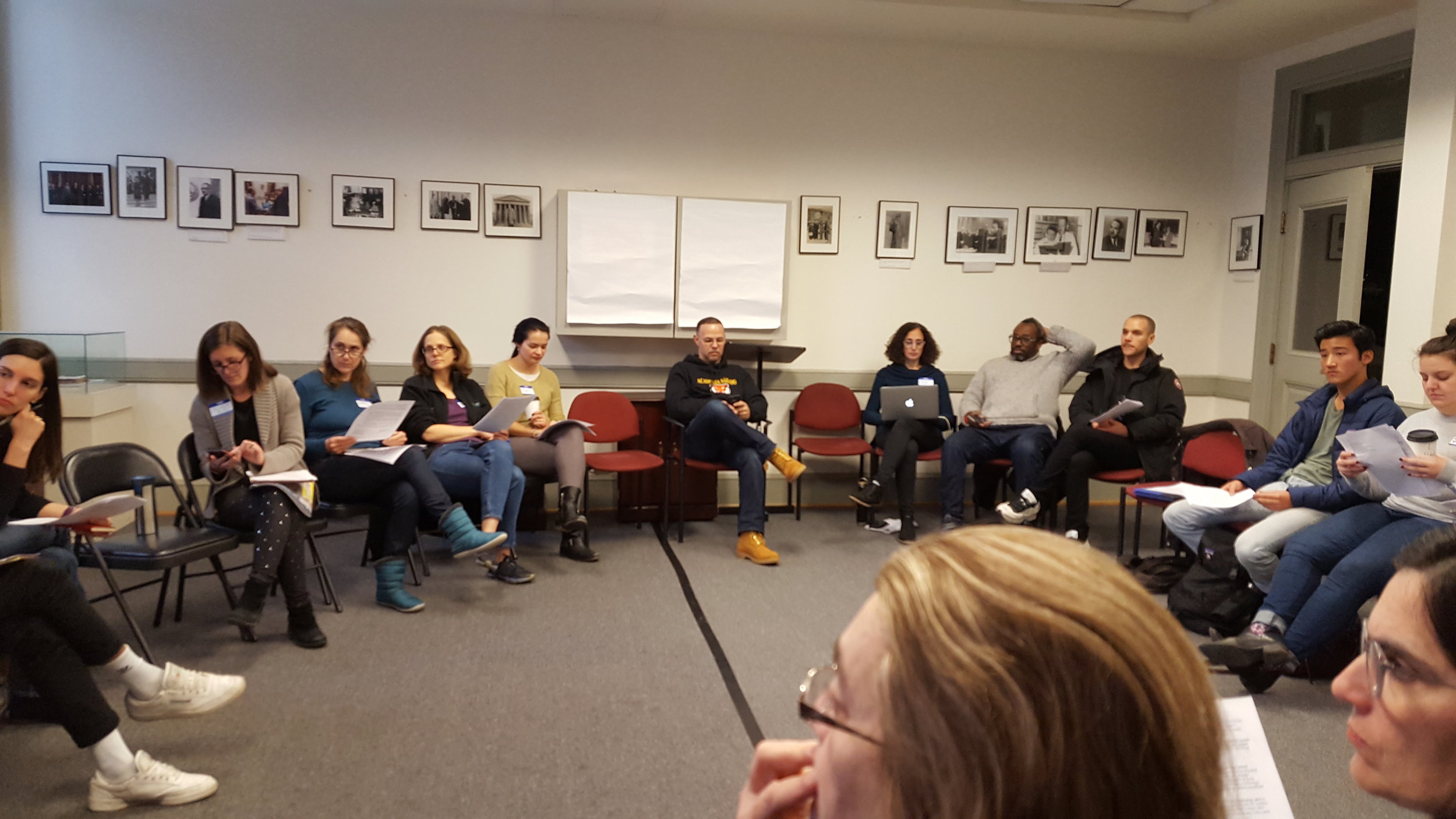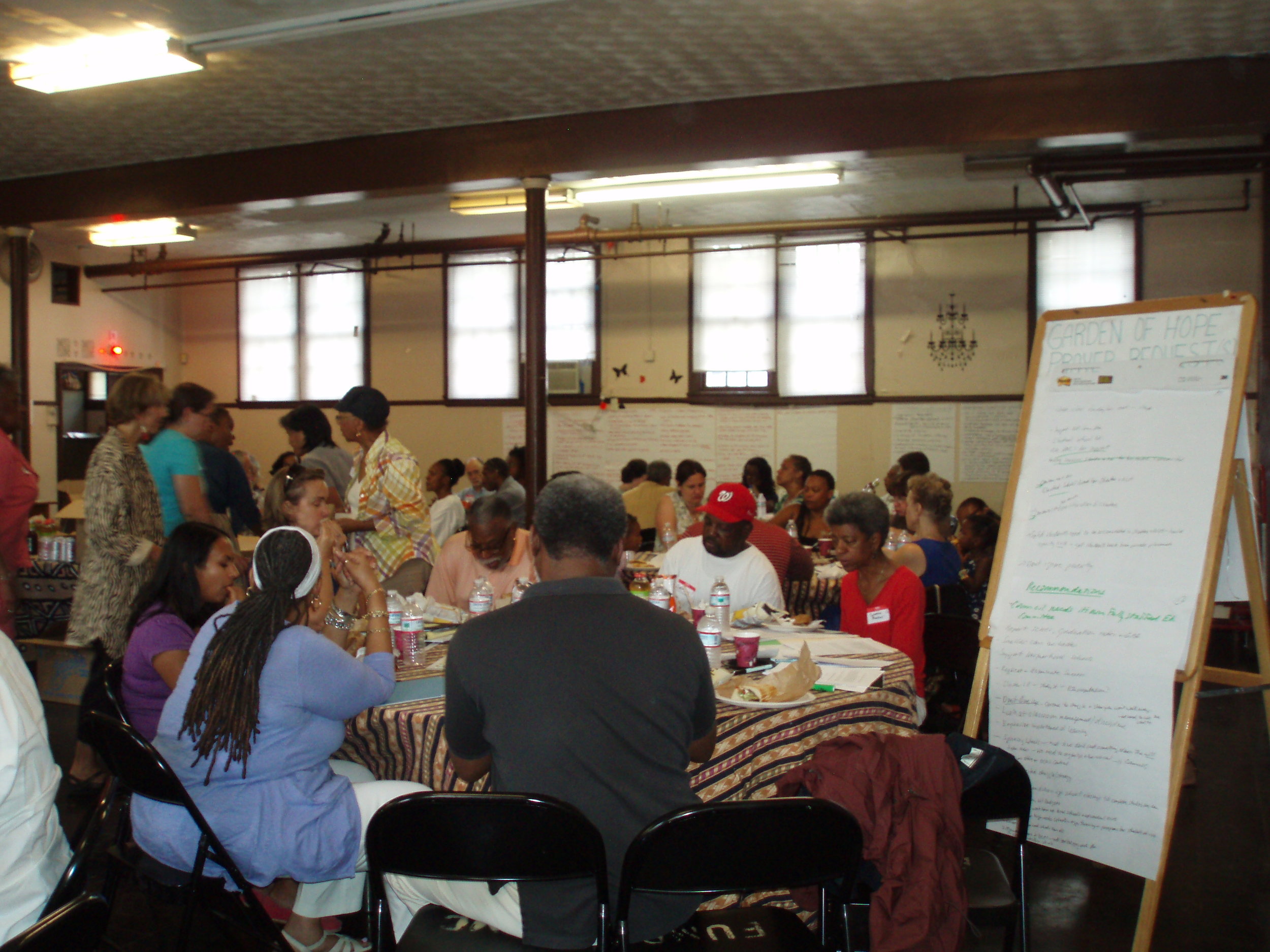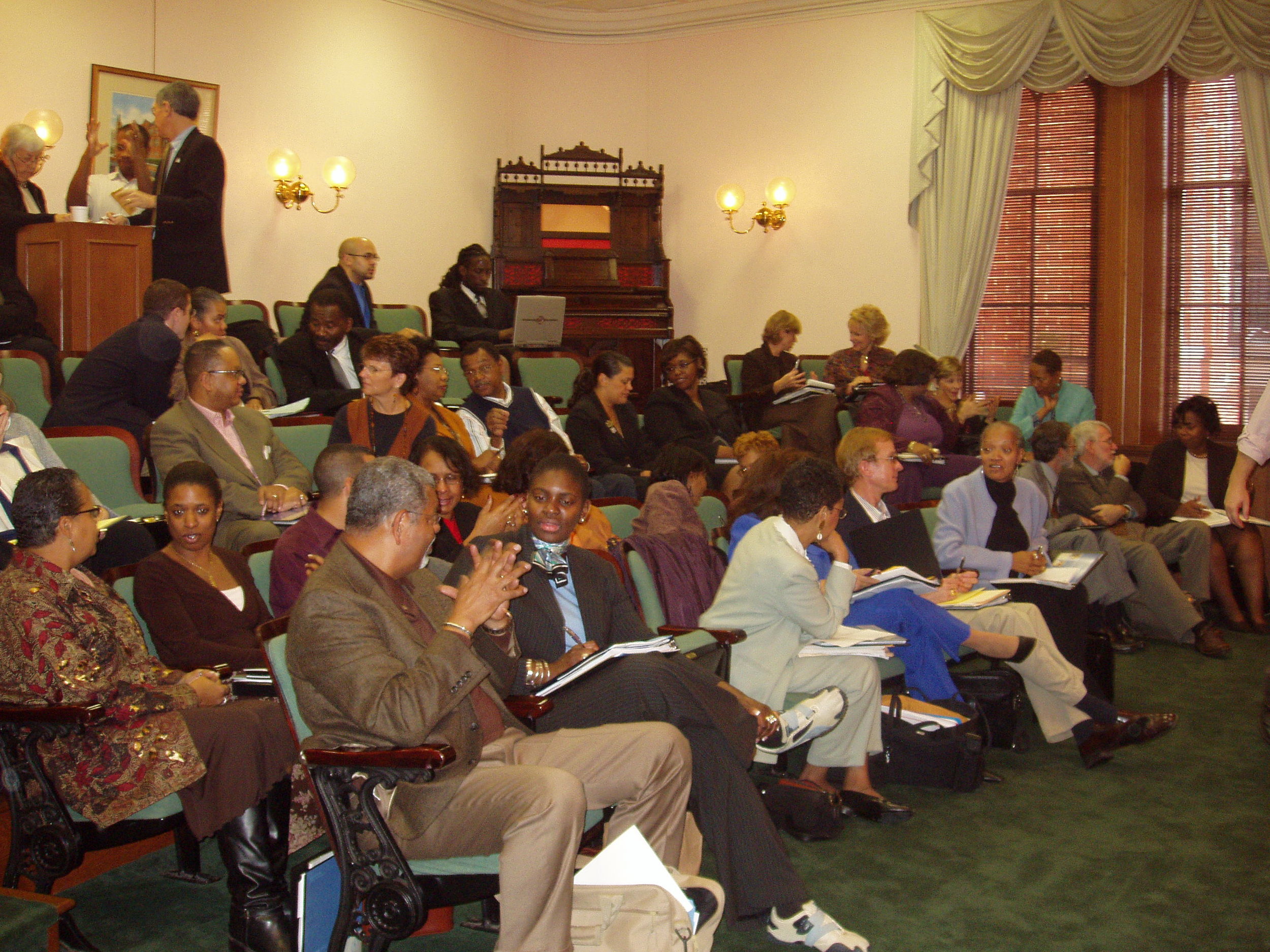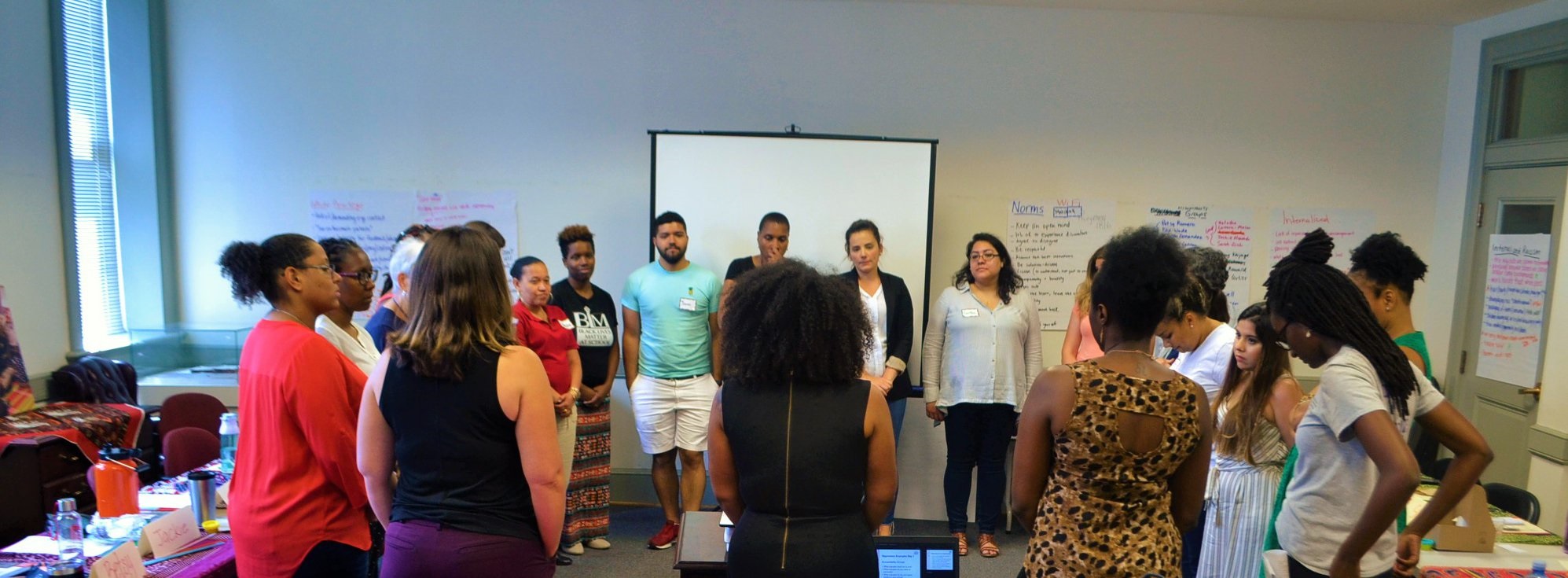Letter to Mayor Bowser & City Council on Search for DCPS Chancellor and Deputy Mayor for Education
/A coalition of DC Education and Equity Advocates today released an open letter to Mayor Bowser and City Council on the search for a new DCPS Chancellor and Deputy Mayor for Education. The letter calls for an open and inclusive process in selecting a new DCPS Chancellor and Deputy Mayor for Education. Mayor Bowser announced that the searches would begin following the June 19h primary and the D.C. community is prepared to engage in an open dialogue about where we are more than ten years after major education reforms changed the landscape of DC education. While progress has been made in many areas, there is much room for improvement. For that reason, this diverse coalition is outlining a positive, forward-looking agenda for DC schools and looks forward to engaging with the Mayor and City Council on how this search process can begin that important conversation.
****************
We Need a Chancellor and DME to Support DCPS and Make Mid-Course Corrections
Open letter to Mayor Bowser and City Council on the search for a new DCPS Chancellor and Deputy Mayor for Education
June 27 , 2018
We write to you today as a diverse coalition of parents, teachers, community members and advocates from all 8 wards who believe all students deserve a neighborhood public school of exceptional quality that is a matter of right, not just choice. As you embark on the process of selecting a new DCPS Chancellor and Deputy Mayor for Education, we ask that you consider how both of these appointees as well as this process may serve as a starting point for the positive, constructive agenda we articulate below.
We’re now over a decade into education reforms. We’ve invested in state-of-the-art facilities, expanded curricular options, increased pre-K 3 seats, and ensured higher teacher pay. These were the right things to do, but there is still so much more to be done. At the same time, the narrative of success does not match reality. NAEP scores were growing faster in the several years before the reforms than they have in the years since. The achievement gap is now wider than it was in 2007. While the city has many strong matter-of-right elementary schools, it has struggled to retain families in most of our neighborhood middle and high schools. Overall, the share of DCPS students has decreased every year, and with almost half of students in DC attending publicly funded charter schools, commutes across town are often a burden. Teacher and principal turnover is at a crisis level in DCPS and charter schools and despite higher pay, morale among teachers is often low. And recent scandals for attendance, graduation accountability, and residency have further eroded community trust in DCPS.
For all of these reasons, our city must undertake a Chancellor selection process that fully and broadly engages the community, acknowledges what isn’t working, and takes concrete steps to chart change. We remain ever hopeful our system can regain its footing and make improvements that genuinely improve our system for all stakeholders--most importantly our students and families.
The next chancellor has the opportunity to set a positive, forward looking, research and experienced- based agenda for DC schools. Our diverse coalition of experienced stakeholders offers a starting point in this letter. We need leadership committed to shifting the culture to one that is collaborative, teaching- and-learning centered, community-engaged, equitable, honest, transparent, and supportive of school-based educators to win the commitment of teachers, principals, students and families. We need leadership who can improve and strengthen our school reform culture.
It may be tempting to simply champion a stay-the-course approach, but we believe this is an opportunity to make DCPS even stronger. We need leadership willing to both identify what’s gone right as well as open and willing to identify areas for improvement and make mid-course corrections. Recent scandals point to the huge gap between the rhetoric of reform, the day-to-day experience of our schools’ students, and elevate the challenges we must address in order to have our education system work for all kids.
Let us begin this conversation from a common set of facts:
Annual progress measured by the Department of Education’s NAEP reading and math test scores these past ten years has actually been less than in the years before the so-called reforms were implemented. Budget analyst Mary Levy has shown that while 4th grade math scores, in DCPS and charter schools combined, improved annually by 3.2 scale points from 2000 to 2007, from 2007 and 2017, they improved only 1.8 scale points annually. Before 2007, 8th grade reading scores for black students increased 2.1 points annually, but only 1.15 points since. If the 2007-09 improvements were credited to the pre-reform policies where they probably belong, then much of the progress since reform would be even worse. We understand the desire to focus on raw point gains--but doing so ignores the racial and economic achievement gaps that we have done little to improve. Recent NAEP scores for 2017 confirm another year of little to no progress on student achievement measurements, with scores for the bottom 25% of students declining and the achievement gaps by race and income widening between 2015 and 2017.
Insisting on staying the course now would mean:
accepting a huge racial/ethnic achievement gap, endangered matter-of-right schools in high-poverty neighborhoods because of heavy reliance on test scores for school quality ratings, excessive focus on test prep, frustrated and disengaged parents and community members, a culture of fear and stress among the teaching staff, unreliable data, and a lack of honest research on what’s working.
accepting the high turnover among teachers and principals that has not abated since it began in 2007. Twenty percent of teachers and twenty-five percent of principals leave DCPS each year. In our highest poverty, lowest-performing schools, teacher turnover is 33%--and it’s even higher in many charter schools. This is not simply a matter of differential turnover. While DCPS points to 94% retention of highly effective educators, those numbers vary widely depending on the school and include many educators who have been consistently rated effective or highly effective except for the one score on the year they left the system. These turnover rates are substantially higher than those of similar urban districts where achievement gains have been at least as fast, if not faster, than DCPS.
The Next Chancellor and Deputy Mayor for Education Must Be Prepared to Change Culture.
The path to improved student learning and better matter-of-right schools in every ward must include the following:
● A Stable, High-Quality Staff of Teachers and Principals in DCPS – Teaching and learning centered schools require a stable staff of adults that students, especially the most vulnerable, can relate to. First, principals should receive longer contracts that allow them to establish and implement good faith, sustainable efforts and build trust and community with staff and families. Second, we should encourage teachers to innovate, collaborate, and mentor each other in order to better improve instruction, reach students, and create a vibrant, professional school culture and provide training and other resources teachers say they need to strengthen their knowledge and skills and grow professionally. Third, we must move away from the punitive IMPACT system, designed to rank and rate educators rather than improve teaching. According to teachers, IMPACT contributes to teacher dissatisfaction and churn, particularly in high poverty schools, and incentivizes databending shortcuts like grade inflation and lowered graduation standards. That doesn’t mean we shouldn’t evaluate teacher performance and seek to retain the most effective educators- but we must build a more collaborative and less oppositional system that encourages teachers, coaches, principals and support staff to work together for the common good of our students. Such systems exist, and we look forward to playing a role in supporting smart reforms to teacher evaluation that achieve this end.
● A Rich, Broad Curriculum Everywhere – Educate the whole child instead of focusing primarily on reading and math skills. As shown by research and experience, a broad, challenging curriculum including science, social studies and arts is the best way to improve student learning, including in the early grades.
● Equitable Funding – Provide resources adequate, and tailored, to student need in all schools. That means additional resources and staffing allocated according to a weighted student formula to target students significantly behind grade level for intervention. Deploy additional staff to work directly with high-need students and high-need schools. Ensure schools receiving at-risk funds are able to use those funds for specific strategies and supports they need to help at-risk students.
● Listening to Individual Schools – More Responsiveness to What School Communities Need and Fewer Top-down Mandates – This means DCPS’s central administrators would shift to collaborating with each school to create a dynamic, trusted, innovative learning culture—not the other way around. The current approach – Central Office rolling out top-down strategies to be implemented with fealty, whether or not they work and make sense at each school– is not viable. Support each school’s staff, parents, community members and secondary students to conduct comprehensive needs assessments and develop and implement individualized school improvement plans addressing that school’s needs. Central Office needs to support greater school autonomy and creativity, rather than impose system-wide uniformity. While one school may need twenty electives, at another school that mandate might unfairly impact staffing and create virtually empty classes and extra teacher preparations instead of using those staff resources where they are needed most.
● Fixing a Broken Discipline System that Disproportionality Harms Children of Color and Children with Disabilities - Far too many children of color and children with disabilities are suspended or otherwise disciplined in the District schools, often for ordinary adolescent behaviors, conduct related to a disability or resulting from trauma. A comprehensive change to the approach to student behavior that is trauma informed and eliminates bias is essential.
● Community Schools –Greatly expand the community schooling approach of wraparound services to overcome students’ non-academic obstacles to learning, such as health and housing; expand extended day and extended year offerings, including sports and civic engagement activities; reach out to parents and families to involve them in school life and support their children’s learning at home; and empower educators to innovate and apply their professional judgment in how schools operate.
● Learning from What Works and What Doesn’t – Honest, Transparent and Independent Data and Research – We know so little about what’s working. Every year there are new initiatives, but which work and how do we know? No research is done to find out. We need to collect a wider range of data about how we’re doing. The data need to be impartially analyzed and publicly reported by independent researchers. Useful data, like parent, teacher and student satisfaction surveys, staff turnover rates, and the results of programs implemented and dollars expended, need to be both collected and made public. A simplified star rating system will only exacerbate these problems. Parents need access to a full view of what’s working and not in our schools, and boiling complex environments down to a star rating may only further erode trust in our public schools and exacerbate racial and class divisions in the city.
● A Respectful and Trusting Environment of Enthusiastic Engagement – Collaborate with each school to create a welcoming, respectful, trusting and enthusiastically engaged environment for all school staff, students, parents and community members.
● Work to Eliminate Racial Segregation in Schools – The District schools remain largely segregated by race more than 60 years after the decision in Bolling v. Sharpe. The overwhelming majority of African American students go to all Black schools. The new superintendent must address the current state of separate and unequal.
● Reform the Modernization and Stabilization Systems of Our School Buildings. Too many schools have not been modernized, and schools that have been modernized are not adequately maintained. We cannot build students’ knowledge when the buildings are in constant crisis.
● Matter of Right Pre-K 3 and 4 and clear path from PreK- 12- Universal access to pre-school is just a starting point. Now it’s time to ensure all families have a matter of right pre-K- 3 and 4 program in their neighborhood DCPS school and a clear path of quality DCPS schools so that students can attend quality DCPS schools from Pre-K to 12 in their own neighborhood. Choice does not solve this problem. Instead, we’ve seen increased school segregation that actually harms students.
● A Robust Technology Plan for All Schools- We must ensure equity in the distribution of both technology and access to technology-based learning throughout our city. Leaving this up to chance has resulted in a continued digital divide that mirrors socioeconomic status of students, which exacerbates our opportunity and achievement gaps.
● The Next DME Must Ensure Quality Matter of Right Schools in all Wards- The next DME must believe in the power of our neighborhood schools and work in partnership with the chancellor to strengthen the matter-of-right neighborhood schools and their feeder patterns and deliberately work to strategically build enrollment. The current lottery system and continued unfettered expansion of charter schools providing duplicative services with DCPS is inefficient and counter-productive. With 21,000 more seats than students, we cannot keep opening and expanding charter schools without doing irreparable harm to the system of matter-of- right neighborhood schools, which are the guarantors of public education. The Cross-sector Task Force failed to grapple with this most pressing problem. The new DME must prioritize a rational plan for how best to efficiently provide for quality matter-of-right public schools in every neighborhood and in every ward, and this must take precedence over the business interests of charter operators. The Mayor and D.C. Council have authority over all our schools funded by public tax dollars and responsibility to decide the public education landscape. Charter schools represent roughly half of our student population. As such public charter schools must be truly public and operate under the same standards as public schools, including being subject to FOIA and the Open Meetings Act. Additionally, if charter schools receive public funds for facilities, the process by which those funds are used and the schools expanded must be clearly outlined, transparent, and with the full knowledge and approval of the community first, not last or never.
Strong Community Engagement Will Earn Trust and Develop Understanding to Set the Stage for the Success of the Next Chancellor and DME.
We believe the recruitment and hiring process for the next Chancellor needs to follow the law. Under the previous process, there were opportunities for public comment, but not a sufficient opportunity for the public to make a serious impact on the final decision as mandated by the law.
Sincerely,
The Capitol Hill Public School Parent Organization (CHPSPO)
Citizens for Effective Schools
EducationDC.net
Education Town Hall- We Act Radio
EmpowerEd DC
NAACP DC
Teaching for Change
Ward One Education Collaborative
Ward Five Council of Education
Ward Seven Education Council
Ward Eight Education Council
Washington Lawyers Committee for Civil Rights and Urban Affairs
Washington Teachers Union (WTU)
and 125+ individual signers
